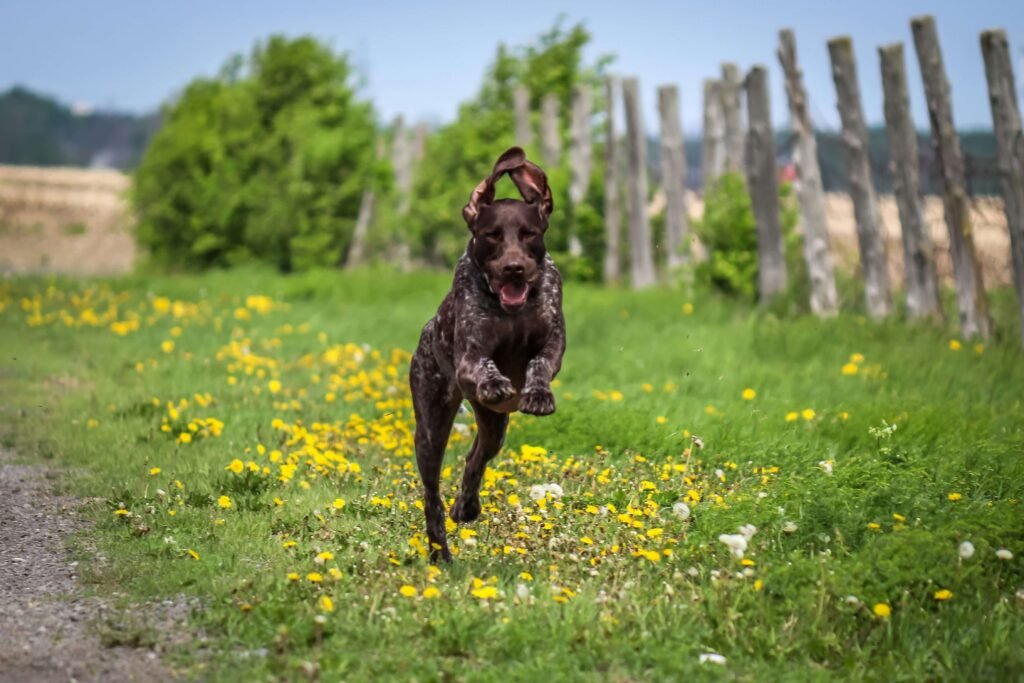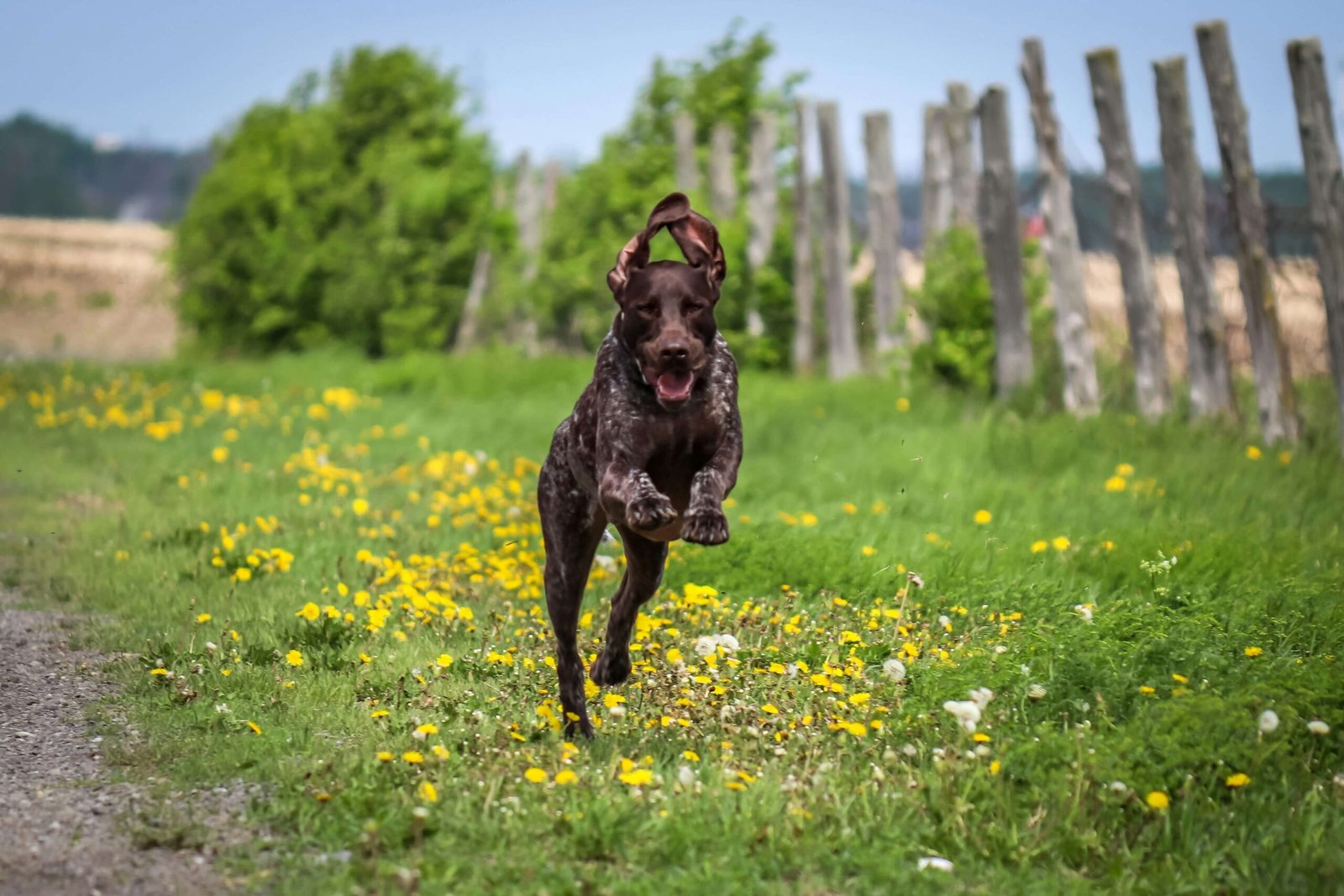German Hunting Dogs: A Legacy of Skill, Loyalty, and Versatility
German hunting dogs have long been celebrated for their exceptional abilities in the field, unwavering loyalty, and adaptability to various terrains and tasks. From dense forests to open plains, these dogs have played a vital role in hunting traditions across Germany and beyond. Known for their intelligence, stamina, and keen sense of smell, German hunting breeds are cherished not only by hunters but also by families seeking devoted companions.
In this blog post, we’ll explore the fascinating world of German hunting dogs, their unique characteristics, popular breeds, and tips for training and caring for them. Whether you’re an avid hunter or simply an admirer of these remarkable canines, this guide will provide valuable insights into what makes German hunting dogs so special.
Popular German Hunting Dog Breeds
Germany is home to some of the most renowned hunting dog breeds in the world. Each breed has its own strengths and traits that make it well-suited for specific types of hunting or environments. Here’s an overview of the most popular German hunting dog breeds:
Deutscher Wachtelhund (German Spaniel):
Known for their versatility, these medium-sized dogs excel at tracking, retrieving, and flushing game from dense cover.Drahthaar (German Wirehaired Pointer):
With their weather-resistant coat and boundless energy, Drahthaars are ideal for upland bird hunting and waterfowl retrieval.Kurzhaar (German Shorthaired Pointer):
This athletic and intelligent breed is prized for its ability to hunt both land and water game with precision.Weimaraner:
Often referred to as the “Gray Ghost,” Weimaraners are graceful, fast, and highly trainable, making them excellent companions for active hunters.Jagdterrier (German Hunting Terrier):
Compact yet fearless, Jagdterriers are experts at underground hunting and pest control.
These breeds showcase the diversity and adaptability of German hunting dogs, each bringing unique skills to the table.
Key Characteristics of German Hunting Dogs
German hunting dogs are revered for their impressive combination of physical prowess, intelligence, and temperament. These traits make them stand out among other working breeds. Here’s what sets them apart:
High Energy Levels:
German hunting dogs thrive on physical activity and mental stimulation, making them perfect for outdoor enthusiasts.Keen Sense of Smell:
Their exceptional olfactory abilities allow them to track scents over long distances and challenging terrains.Trainability:
Known for their intelligence, these dogs respond well to consistent and positive reinforcement-based training.Versatility:
Many German hunting breeds are skilled at multiple tasks, including pointing, retrieving, and flushing game.Strong Work Ethic:
These dogs are driven by purpose and take pride in fulfilling their roles as hunting companions.
The combination of these characteristics makes German hunting dogs invaluable partners in the field and loving companions at home.
Check this guide 👉The German Shepherd Dachshund Mix: Best 7 Expert Tips!
Check this guide 👉The German Shepherd Cattle Dog Mix: Best 7 Expert Tips!
Check this guide 👉Carpathian Shepherd Dog: Best 7 Expert Tips!

Breed | Best Suited For |
|---|---|
Deutscher Wachtelhund | Tracking and flushing game in dense terrain |
Drahthaar | Upland bird hunting and waterfowl retrieval |
Kurzhaar | Versatile hunting in varied environments |
Weimaraner | Long-distance hunting and endurance tasks |
Jagdterrier | Underground hunting and pest control |
Training Tips for German Hunting Dogs
Training a German hunting dog requires patience, consistency, and an understanding of their natural instincts. Here are some tips to help you bring out the best in your canine companion:
Start Early:
Begin training during puppyhood to establish good habits and build a strong foundation.Use Positive Reinforcement:
Reward desired behaviors with treats, praise, or play to encourage learning and cooperation.Incorporate Real-Life Scenarios:
Practice hunting-related exercises in environments similar to where they’ll be working.Focus on Obedience First:
Teach basic commands like “sit,” “stay,” and “come” before advancing to specialized skills.Keep Sessions Engaging:
Short, fun training sessions prevent boredom and maintain your dog’s enthusiasm.
With proper training, your German hunting dog will become a reliable and skilled partner in the field.
Caring for Your German Hunting Dog
To ensure your German hunting dog remains healthy, happy, and ready for action, it’s essential to meet their physical and emotional needs. Here are some care tips:
Provide Ample Exercise:
These high-energy dogs require daily physical activity to stay fit and prevent behavioral issues.Maintain a Balanced Diet:
Feed a high-quality diet tailored to their age, size, and activity level to support overall health.Regular Grooming:
Depending on the breed, grooming may include brushing their coat, trimming nails, and cleaning ears.Schedule Routine Vet Visits:
Regular check-ups and vaccinations are crucial for maintaining their well-being.Mental Stimulation:
Puzzle toys, scent work, and interactive games keep their minds sharp and engaged.
By prioritizing their care, you’ll ensure your German hunting dog thrives both physically and mentally.
Common Challenges When Owning a German Hunting Dog
While German hunting dogs are incredible companions, they do come with their own set of challenges. Understanding these potential hurdles can help you prepare for a harmonious relationship with your dog.
High Energy Levels:
Their boundless energy can become overwhelming if not properly channeled into exercise or work.Separation Anxiety:
These social breeds often struggle when left alone for long periods, leading to destructive behaviors.Strong Prey Drive:
Their natural instinct to chase can make off-leash activities risky in unsecured areas.Need for Mental Stimulation:
Without adequate mental challenges, they may develop boredom-related issues like chewing or digging.Weather Sensitivity (for some breeds):
Certain coats may not be suited for extreme temperatures, requiring extra care during hot or cold seasons.
By addressing these challenges proactively, you can ensure a happy and balanced life for both you and your dog.
Activities Beyond Hunting for Your German Hunting Dog
If you’re not an avid hunter, don’t worry—German hunting dogs thrive in many other activities that tap into their natural instincts and energy. Here are some alternative ways to keep them engaged:
Agility Training:
This fast-paced sport combines physical exercise and mental focus, making it perfect for high-energy breeds.Scent Work Trials:
Leverage their keen sense of smell by participating in scent detection competitions or games.Dock Diving:
Many German hunting dogs love water and excel at dock diving events, showcasing their swimming skills.Obedience Competitions:
These events challenge their intelligence and trainability while strengthening your bond.Long Hikes and Outdoor Adventures:
Exploring trails and terrains together provides physical exercise and quality bonding time.
With so many options available, you can find activities that suit your lifestyle while keeping your dog fulfilled and happy.
Signs Your German Hunting Dog Is Well-Trained
A well-trained German hunting dog is a joy to have around, whether in the field or at home. Here are signs that your dog has mastered their training and is ready for any task:
Responsive to Commands:
They consistently follow instructions like “sit,” “stay,” and “come” even in distracting environments.Calm Indoors:
Despite their high energy, a well-trained dog knows how to relax and behave calmly at home.Controlled Prey Drive:
They can resist chasing small animals unless given permission during hunting scenarios.Strong Recall Skills:
A reliable recall ensures they return promptly when called, even in open spaces.Adaptability to New Situations:
They remain composed and focused when introduced to unfamiliar environments or tasks.
These signs indicate that your German hunting dog is not only skilled but also a well-rounded companion ready to take on any adventure with you.
Frequently Asked Questions About German Hunting Dogs
Are German hunting dogs good family pets?
Yes, many German hunting dogs are affectionate and loyal, making them excellent family companions when given enough exercise and attention.
How much exercise do German hunting dogs need?
They typically require at least 1-2 hours of vigorous exercise daily to burn off excess energy.
Do German hunting dogs get along with other pets?
Most are social and adaptable but should be introduced properly to ensure harmony with other animals.
Are they easy to train?
Yes, their intelligence and eagerness to please make them relatively easy to train with consistent methods.
What is the lifespan of a German hunting dog?
On average, these breeds live 10-14 years, depending on genetics, care, and lifestyle.
Final Thoughts: The Timeless Appeal of German Hunting Dogs
German hunting dogs embody the perfect blend of skill, loyalty, and versatility. Whether you’re looking for a dedicated hunting partner or a loving family pet, these breeds offer unmatched qualities that cater to a wide range of lifestyles. By understanding their unique traits, investing time in training, and providing attentive care, you can forge a lifelong bond with your German hunting dog. Their unwavering dedication and boundless energy make them truly remarkable companions, capable of excelling in any role you give them. If you’re ready to welcome one of these incredible dogs into your life, prepare for an adventure filled with joy, challenges, and countless unforgettable moments.
Dog Tapeworm Life Cycle: Best 7 Expert Tips! – Learn how tapeworms infect dogs, spot symptoms, and break the cycle with expert prevention strategies.
Anxious Cat Body Language: Best 7 Expert Tips! – Learn to spot signs of stress, understand triggers, and help your cat feel safe and relaxed.
Anxious Dog Body Language: Best 7 Expert Tips! – Learn to spot signs of anxiety, respond effectively, and help your dog feel safe and secure.
Is Breeding Dogs Bad? Best 7 Expert Tips! – Explore the ethics, benefits, and risks of dog breeding to make informed decisions for a better future.





